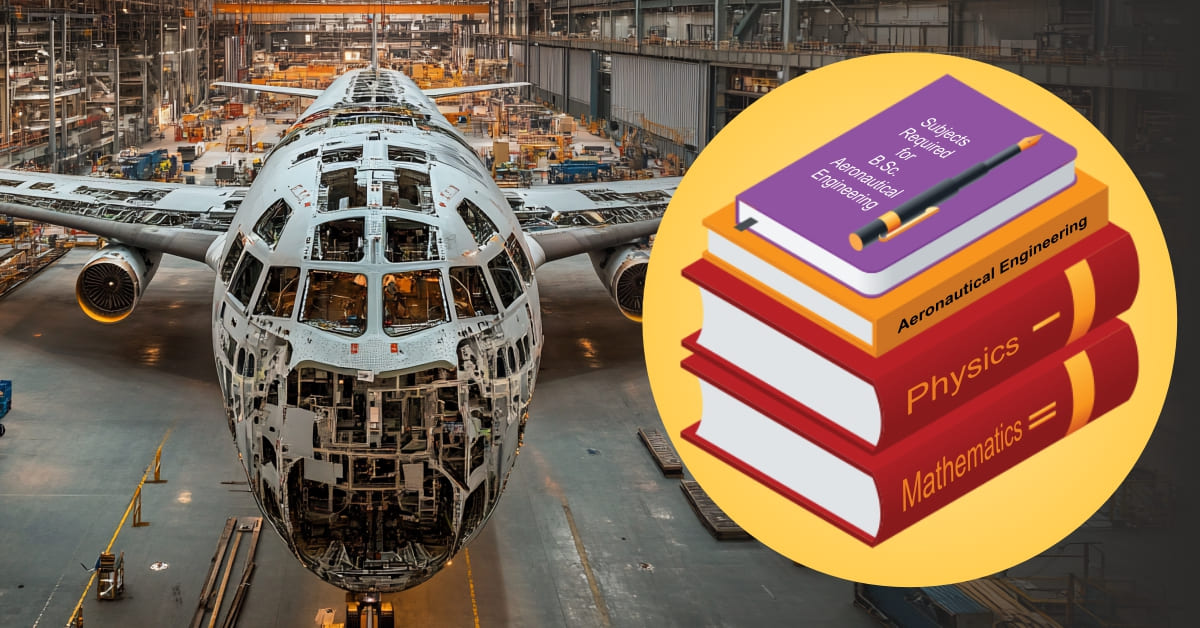Subjects Required for B.Sc. Aeronautical Engineering
Posted on : 9 November, 2025 12:06 pm
Aeronautical engineering is an exciting field that deals with the design, building, and maintenance of aircraft and spacecraft. Students who take up a B.Sc. in Aeronautical Engineering study a mix of science, mathematics and engineering subjects. These subjects help them gain both classroom knowledge and practical skills. If you want to build a career in this area, the first step is to understand the subjects you will need to learn.
Core Science Subjects
- Physics – Physics forms the foundation of aeronautical engineering. Topics such as mechanics, thermodynamics, fluid dynamics and electricity are essential to understand how aircraft operate.
- Mathematics – Strong mathematical skills are crucial for solving complex engineering problems. Calculus, algebra, trigonometry and differential equations play a big role in aeronautical studies.
- Chemistry – Although not as central as physics, chemistry is important for learning about fuels, materials and corrosion critical aspects of aircraft performance and safety.
- Computer Science Basics – With the growing role of simulations and digital modeling in aeronautics, knowledge of programming and computational methods is becoming increasingly important.
- Environmental Science – Understanding the environmental impact of aviation, such as emissions, noise pollution and sustainable fuel usage, is vital for developing eco friendly aircraft.
Specialized Aeronautical Subjects
- Aerodynamics – This subject focuses on the behavior of air as it interacts with aircraft surfaces. It helps students understand lift, drag, thrust and stability.
- Aircraft Structures – Students learn about the strength of materials, stress analysis and how to design durable aircraft parts.
- Propulsion Systems – This area covers engines and power systems that enable aircraft to fly, including jet propulsion and rocket engines.
- Flight Mechanics – Students study how aircraft move in the air, covering topics like stability, control and navigation.
- Avionics – Avionics combines electronics and communication systems used in modern aircraft for safe and efficient operation.
Supporting Subjects
- Computer Programming – With the growth of technology, learning programming and software tools like MATLAB and CAD is important for aircraft design and simulations.
- Engineering Drawing & Design – Students learn how to make technical drawings and 3D models, which are useful for creating aircraft designs.
- Materials Science – This subject teaches about strong, light and heat-resistant materials that are used to build safe and durable aircraft.
Why These Subjects Matter
The mix of these subjects equips students with the knowledge needed to tackle real-world aviation challenges. From designing advanced aircraft to ensuring safety in flight, the curriculum prepares graduates for careers in research, airlines, space agencies and defense organizations.
B.Sc. in Aeronautical Engineering is not just a degree, but a doorway to a bright career in one of the most advanced industries in the world. By studying science, aeronautical subjects and other supporting topics, students develop the knowledge and problem solving skills needed to succeed in aviation and aerospace. Whether you want to design aircraft, work on engines or help build eco friendly flying solutions, this course gives you a strong start. With more opportunities opening in both India and abroad, aeronautical engineering offers a future full of growth, innovation and exciting career options.

